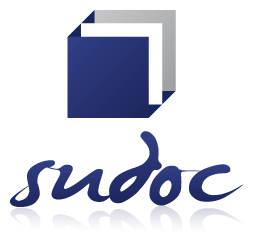Investigating the effect of Iranian studies course on increasing the motivation of Tehran International High School students to travel to Iran
DOI:
https://doi.org/10.63053/ijhes.40Abstract
Tourism is a dynamic science that drives and motivates the education of many sciences, especially humanities and cultural affairs. One of the characteristics of this industry is Iranian studies, which due to the beginning of its teaching in Tehran International School, is an attempt to investigate the effect of teaching this subject on the motivation of high school students to Iranian studies and to identify the priorities of them about travel in Iran. This research was conducted in the international and Adaptive high school of Tehran and the data collection tool was an interview form and a questionnaire. The research method is quantitative-qualitative and the results of data analysis show that Iranian and non-Iranian students were most popular in food tourism and visiting historical attractions. From their point of view, they pay attention to tangible heritage such as historical sites and museums. Intangible heritage such as food, clothing and handicrafts should be prioritized.
References
-Ademzadeh, Fatemeh, The effect of globalization on education and training, collection of articles of the first conference on globalization and education.
-Asgarian, Mustafa, The place of ethnic cultures in citizen training, Educational Innovation Quarterly, Year 5, Number 31
- Mahbobo Eskandari Rad, Esmat Rasouli, localization of school curriculum and its effect on ethnic cultural identity, Islamic Azad University, Sari branch, July 30, 2015
- Rahimi, A. R., Basic propositions about the interaction of education and public culture, 10th year cultural research letter, 3rd period, 7th issue (2008).
- Raispour, A. A. and Furqani, M., The effectiveness of schools on the moral development of students, Proceedings of the First International Conference on Management, Innovation and National Production, Qom: Jabari Publications, 2018.
- X. R. Wu, B. Q. Liu, and T. T. Yuan, “A new generation of smart class: concept, platform and system Architecture,”
China Educational Technology, vol. 3, pp. 81–88, 2019.
- S. K. Mydhili, S. Periyanayagi, and S. Baskar, “Machine learning based multi-scale parallel K-means++ clustering for cloud-assisted internet of things,” Peer-to-Peer Networking and Applications, vol. 13, no. 2, pp. 2023–2035, 2020.
- T. Yilmaz, R. Ozcan, I. S. Altingovde, and ¨ O. Ulusoy, “Improving
educational web search for question-like queries through subject classification,” Information Processing &
Management, vol. 56, no. 1, pp. 228–246, 2019.
-Charles, G. & Albert, A. (1999). Psychology an Introduction. Ed. Ke-10. Prentice Hall: New Jersey.
Imazeki, J. & Reschorsky, A. (2003). Financing adequate education in Rural Settings. Journal of Education Finance, 29 Fall, 137-156.
-Ma’arof Redzuan. (2001). Psikologi Sosial. Penerbitan Putera Malaysia. Serdang, Selangor.
-Nik Safiah Karim. (2006). Kamus Dewan Bahasa dan Pustaka. Kuala Lumpur. Dewan Bahasa dan Pustaka.
-Paul, B. H. & Chester, L. H. (1994). Sociology. USA: McGraw Hill Book Company.
-Preston, S.H. & Elo, I.T. (1996). Survival after age 80: letter to the editor. New England Journal of Medicine,334(8),53
-Ross, C. & Wu, C.L. (1996). Education, age, and the Cumulative advantage in health. Journal of Health and Social Behaviour, 37:104-120.
-William Stewart. (2000). Building Self-Esteem. Golden Books Centre Sdn. Bhd. Kuala Lumpur
-Fazilah Idrisa,*, Zaharah Hassana , Azizah Ya’acoba , Saran Kaur Gillb & Noor Aziah Mohd Awalc Procedia - Social and Behavioral Sciences 59 ( 2012 ) 443 – 450
Downloads
Published
How to Cite
Issue
Section
License
Copyright (c) 2023 Authors

This work is licensed under a Creative Commons Attribution 4.0 International License.
The journal is licensed under a Attribution 4.0 International (CC BY 4.0).
You are free to:
- Share — copy and redistribute the material in any medium or format for any purpose, even commercially.
- Adapt — remix, transform, and build upon the material for any purpose, even commercially.
- The licensor cannot revoke these freedoms as long as you follow the license terms.
Under the following terms:
- Attribution - You must give appropriate credit , provide a link to the license, and indicate if changes were made . You may do so in any reasonable manner, but not in any way that suggests the licensor endorses you or your use.
- No additional restrictions - You may not apply legal terms or technological measures that legally restrict others from doing anything the license permits.












